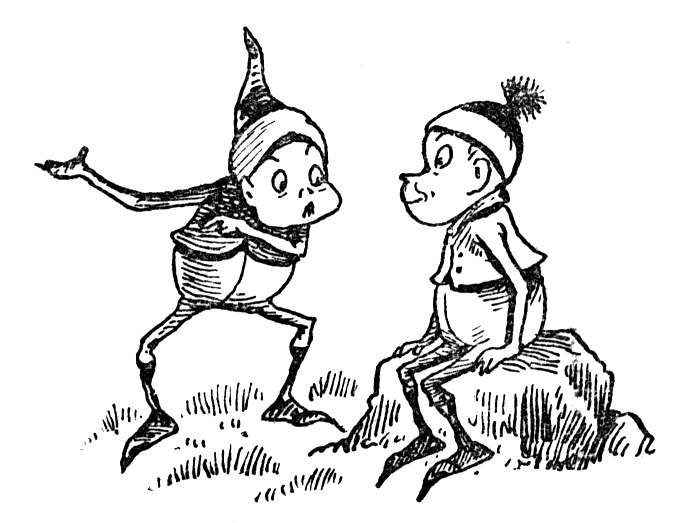What do you know about Persuasion? Explain its components, principles and techniques in detail. Persuasion : Persuasion refers to the process by which a person’s attitudes or behaviour are, without duress, influenced by communication. Persuasion pervades over almost all human activities and it is geared to information transmission in such a way as to get people to revise old pictures (Predisposition) in their minds, or form new ones, and thus change their behaviour. To some others persuasion is seen as “Communication to influence choices”. Still to others it is “a process that changes attitude, belief, opinion or behaviour”. Actually, we try to sell ideas, concepts, products etc. through the art of persuasion. Persuasion may be carried out in offices, workplaces, homes, etc. by fellow workers or neighbours. Persuasion has been treated as an art, a craft and a science since ancient times and classical thinkers like Aristotle and Cicero devoted […]
Ten-Point Planning Model for a Public Relations Campaign
Ten-Point Planning Model for a PR Campaign: Scarcity of the resources often forces us to resort to constraints. Therefore, ptudence demands that we plan our expenditure, make a judicious use of the available resources and try to obtain the best possible results at the minimum possible cost. The generally accepted PR planning model encompasses: Assessment of the situation Isolation of the problem Establishing policies Extending in-depth research Determining objectives Defining publics Development of a plan/selection of media and the techniques Planning of a budget Execution of the Plan Assessing results 1.Assessment of the Situation Before chalking out/formulating a PR programme, it is necessary to be clear about its starting point as without having a clear perception about the public esteem or the current “image” of an organization, it would not be possible for any PR practitioners to chalk out an appropriate programme and/or recommend measures/considered necessary for improving the public […]
Public Relations Setup for Official and Non-Official Organizations
Elaborate the PR setup for official and non-official organizations. Public Relations setup for official and non-official organizations Public relations can be classified into Various types, viz government/official PR, financial/industrial/commercial PR, political PR, international PR etc. Official Public Relation: Public relations is considered to be an essential component for the smooth functioning of any government, state agency or department. Although official PR departments are considered to be non political and non partisan, th® parties in power in some third world countries, often try to use these for achieving/furthering their own political ends. The basic duties/functions of a PR set-up of a government include: 1. To keep the citizens informed of the government policies, achievements, organization welfare programmes and projects. 2. To interpret the rules, procedures, laws and the new enactments in an easy and simple language and to keep the citizens informed of all matters/vital issues having a bearing on their […]
Duties and Qualities of Public Relations Officer
Write about the duties and qualities of a Public Relations Officer. Duties and Qualities of Public Relations Officer: In recent years, the demand for public relations officer in both private and public sectors has gone up considerably. It can be a very interesting career option where one can get exposure to press conferences, organizing events, communication budgeting, reputation management, etc. If you want to find your niche in the dynamic domain of PR, read on to understand the responsibilities and required skill sets of this field. According to the Institute of Public Relations, USA, “Public Relations is a deliberate, planned and sustained effort to establish and maintain mutual understanding between an organization and its public.” A public relations officer (PRO), also known as ‘Media Specialist,’ is the spokesperson of an organization. His or her role is to convey the policies and interests of the organization to the public through various […]
Origin & Development of Public Relation in Pakistan
Q4. Explain the origin and development of Public Relations in Pakistan. Origin of Public Relation in Pakistan: Like other parts of the globe, in the areas now constituting Pakistan, PR was practised in one form or the other, even thousands of years ago. The rulers of South Asia sub-continent made use of rocks and specially constructed monuments to convey royal proclamations and decrees and/ or to highlight their achievements. The rt>yal proclamations, the words of wisdom and Achievements of some rulers of the bygone days can be seen carved on some rocks near Mansehra, Gilgitand other areas in the northern Pakistan even to day . Ashoka’s (about 300B.C) royal decrees appear on a rock near the present city of Mansehra in NWFP. The main purpose of these carvings on rocks/monuments was the desire of the ruler to keep a constant channel of communication, and thus g sustained understanding, with the […]
Need and Importance of Code of Ethics in Public Relations
Q.3 Explain the need and importance of a code of ethics in Public Relations with special reference to Pakistani. Public Relations Ethics: Before proceeding further, let us have a look at the meaning of the word “ethics”. The words “ethics” and “ethical” are often used synonymously with morals, and ethical f virtues of a person or a group of persons are also considered his or their moral qualities. | Ethics has been derived from the Greek word “ethos” and morals is derived from the Latin word “mores”, both of which means habits or customs. According to the encyclopedia Britannic the ethics or morality of persons or groups, however, consists not merely of f what they habitually or customarily do but of what they think is fitting, right or obligatory to do. Men’s actions are often, but not always, a sign of what they believe: their actions may diverge from their […]
